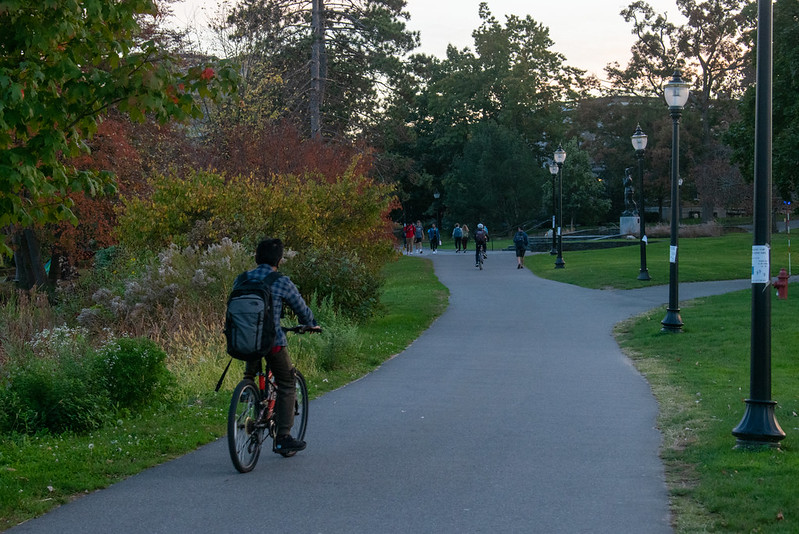Governor Charlie Baker announced last week that all vaccinated adults in Massachusetts are eligible to receive a COVID-19 booster shot. Pfizer and Moderna booster shots were previously limited to those at high risk of contracting COVID, including everyone over age 65.
This is great news. As students living and learning in close quarters, the opportunity to receive booster shots increases protection against COVID among an overwhelmingly vaccinated community.
But, there’s a problem. Only 53 percent of the world’s population has received at least one dose of a COVID-19 vaccine, never mind a second or third dose as a booster. About 70 percent of the population of high and upper middle income countries are vaccinated, compared to five percent of low income countries. Risking the development of COVID variants among the unvaccinated is a threat to public health that will lengthen the nearly two-year-old pandemic. Booster shots should not be a priority until COVID vaccines are distributed more equally.
“When scarce vaccines are used as boosters, rather than as first shots for the unvaccinated, that allows the virus to replicate and mutate, potentially creating variants of concern that undercut vaccine protection,” University of Washington bioethics Professor Nancy Jecker said.
In August, the director of the World Health Organization called for a two month moratorium on booster shots, ideally until 10 percent of people in every country are vaccinated. It’s a goal that has not been reached nearly four months later.
“We should not accept countries that have already used most of the global supply of vaccines, using even more of it,” he said. “While the world’s most vulnerable people remain unprotected.”
The United States doesn’t break the top 15 most vaccinated countries, but it’s not due to a lack of supply. U.S. adults have had months to get the vaccine, yet only 71 percent are fully vaccinated.
Critics argue that wealthy countries are the rightful owners of purchased vaccine doses, free to distribute them with the nation’s best interests in mind, but that’s the wrong outlook to take when worldwide health is at stake. Intellectual property protections should be waived for COVID vaccines, putting health ahead of profit.
“For-profit companies have a stranglehold on patents, locking-in profits while simultaneously accepting government subsidies to offset research and development costs… In pursuit of their own self-interest, governments simply paid for their own spot at the front of the vaccine line. This has led to unequal access between rich and poor nations.”
Vaccine inequality is a significant, global issue, but that doesn’t mean you should hesitate signing up for a booster shot. Third doses are available in Massachusetts now and failing to receive one will not solve any of the issues previously mentioned. You’re obligated to protect those closest to you given the resources available, and now, that means getting a booster shot.
The issue is comparable to fighting climate change. Sure, you can use paper straws and energy efficient light bulbs, but substantial change will only come if corporations significantly reduce their fossil fuel emissions. Individuals can and should reduce their consumption to protect the environment, but they’re not ultimately responsible for enacting structural change.
The same is true of the COVID vaccine. Individuals with access to a booster shot are responsible for protecting themselves and their community, not redistributing medical care across the world. You can get vaccinated and recognize the system under which you’re able to do so, one that prioritizes western money and medicine over equality.
Living in a country with access to widespread, free COVID vaccines is a privilege, so take advantage of it.
Vaccinated individuals can schedule a booster shot appointment through the University of Massachusetts Vaccine Clinic.
Catherine Hurley can be reached at [email protected] and followed on Twitter @cath_hurley.





















Weightwatchers • Nov 30, 2021 at 9:45 pm
Great article, Catherine.
Here’s a thought: in the spirit of supporting the wellness of our community, and to reduce the burden on our health-care system which is already overburdened during this pandemic, those of us in the US who number among the obese 42% should lose some weight.
Plus, everyone who has a meal plan is paying for the excess consumption of the gravitationally endowed. It’s only fair that you do your share, by eating less than your regular share.